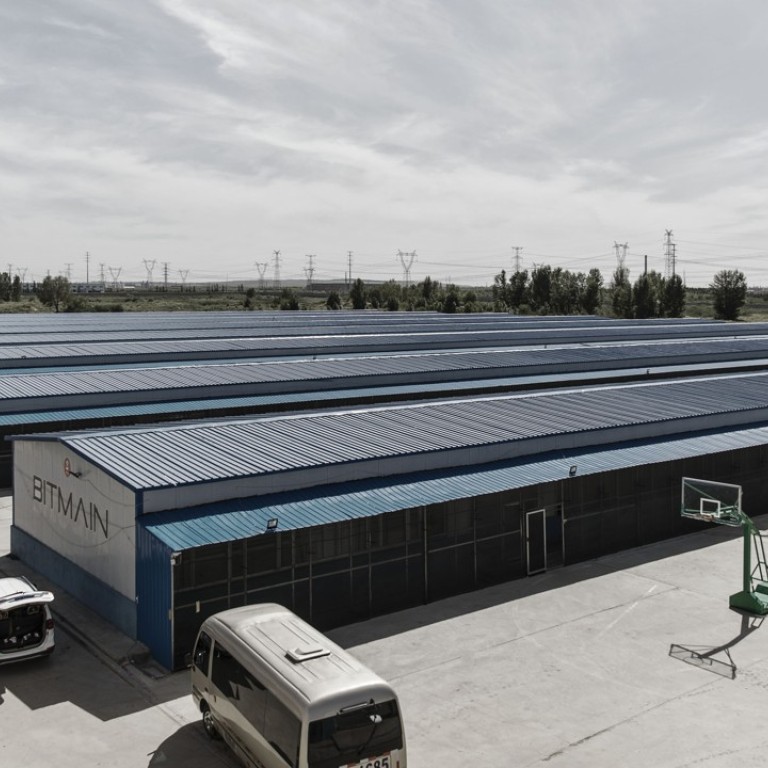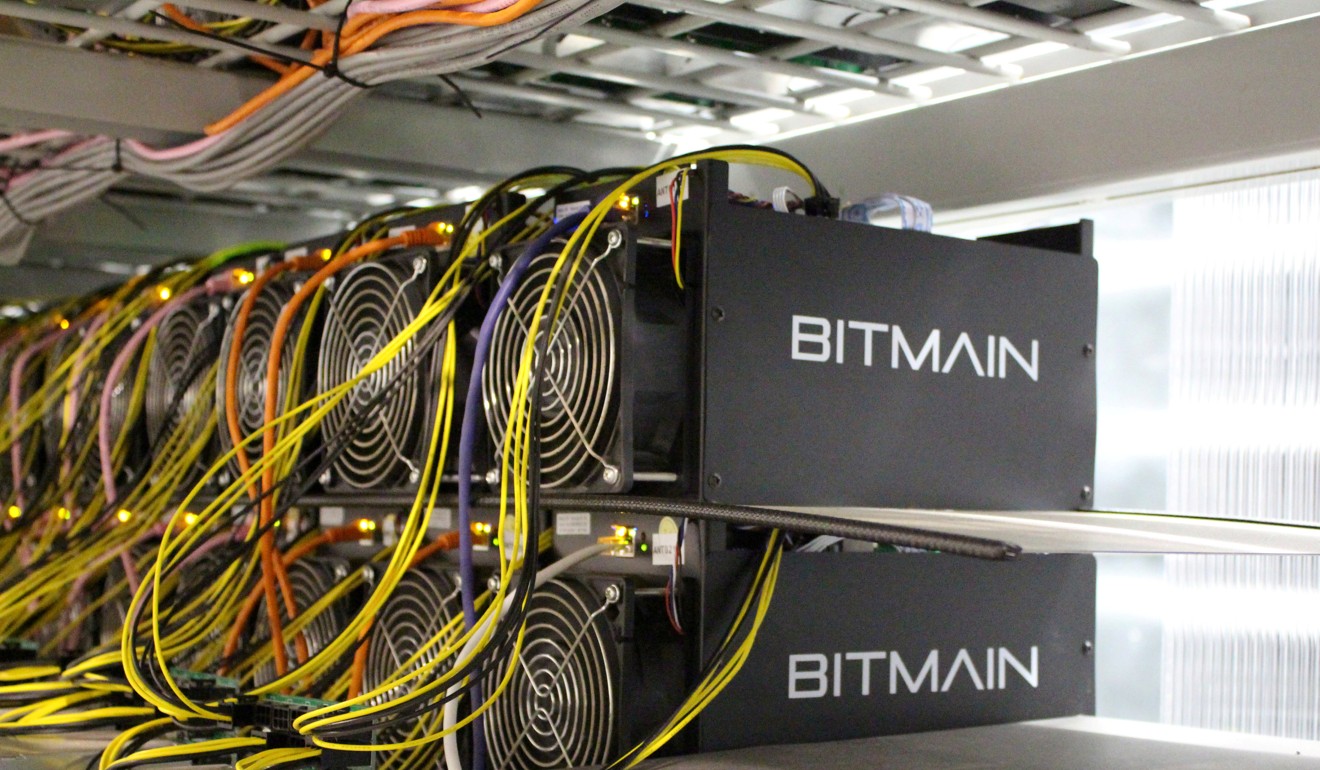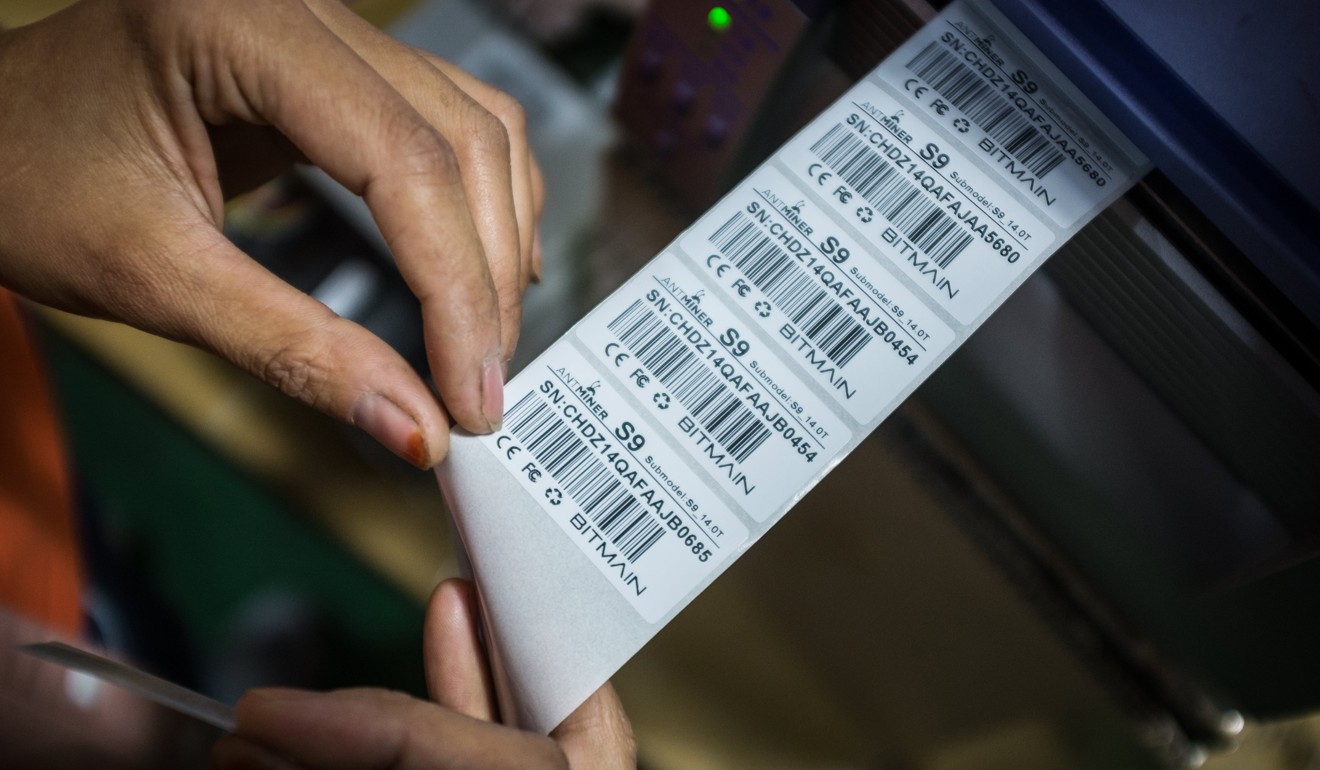
Bitmain, Canaan and Ebang IPO plans snared by Trump’s tariffs on Chinese cryptocurrency mining gear
Beijing-headquartered Bitmain is likely to be the worst affected among the three Chinese mining hardware makers by the new US tariffs targeting Chinese goods
Chinese cryptocurrency mining hardware maker Bitmain is bracing for harder times as the China-US trade war shifts into high gear, with shipments to one of its overseas markets facing new tariffs since August 23.
That could be a problem for Beijing-headquartered Bitmain, which filed for a Hong Kong stock market listing in September, and is seen as the most exposed among Chinese mining hardware makers to US trade barriers, according to analysts.
Bitmain seen posting Q2 loss ahead of Hong Kong IPO
The tariff, which affects all Chinese cryptocurrency mining equipment makers exporting to the US, has come a time when other players such as Cannaan and Ebang International have filed applications to list on the Hong Kong bourse.
The office of the United States Trade Representative in June categorised Bitmain’s mining hardware, called Antminer S9, as “electrical machinery apparatus” which is subject to a 2.6 per cent tariff. Previously the goods were classified as “data processing machine”.
The reclassification brought the mining hardware under the list of Chinese goods subject to the additional 25 per cent tariffs, which took effect in August. The outcome is that Chinese cryptocurrency mining gear makers now face tariffs on their US shipments of 27.6 per cent, up from zero previously.
SFC puts cryptocurrency regulation at the top of its agenda
In September, Bitmain filed for a Hong Kong listing which would reportedly raise US$3 billion.
The company did not respond to emailed questions by the Post.
“All manufacturers of mining rigs based in China will likely be affected by the tariff code change and, in turn, captured by the US trade tariff,” said Ben Gagnon, co-founder of LuTech, a bitcoin mining hardware developer.
Gagnon said over the past 18 months he has seen a pickup in investment and mining activities in the US.

Canaan and Ebang International are reportedly seeking to raise US$400 million and US$1 billion through their respective IPOs.
Still, the impact of the US tariffs upon Bitmain could be more significant than its competitors.
Crypto’s open secret: its multibillion-dollar volume is suspect
Bitmain is the world’s largest maker of ASIC (application-specific integrated circuit) cryptocurrency mining hardware, according to consulting firm Frost & Sullivan.
Bitmain’s overseas sales contributed 51 per cent and 51.8 per cent of its revenue in 2016 and 2017 respectively, according to its IPO prospectus. The data however, did not provide a specific geographic breakdown.
Meanwhile, Canaan and Ebang International, reported that overseas sales represented 8.5 per cent and 3.8 per cent of their total revenue in 2017 respectively.
Mark Li, senior analyst at Sanford C. Bernstein, said in a research report in August that Bitmain’s Antminer S9, launched in 2016, accounted for over half of the company’s US$2.5 billion revenue in 2017.
Li believes the US tariffs is likely to make Chinese mining hardware less competitive than rival products made in other countries.

In an October report Li cautioned of a major U-turn in Bitmain’s extraordinary growth story, citing an abrupt downturn in revenue. Data for the second quarter showed revenue from sales of mining hardware fell to US$850 million, or less than half of the US$1.8 billion recorded in the first quarter.
Total revenue for the second quarter eased to US$950 million, down from US$1.9 billion in the first quarter, according to Bernstein estimates.
“We believe Q2 2018 marks the beginning of a very rapid deterioration at Bitmain” Li said in the report.
He said sales of mining hardware accounted for 94 per cent of the company’s total revenue.
Cryptocurrency traders in China find ways to get around state regulators
Bitmain also faces intense competition that is threatening to erode its technology edge, according to Li.
“The US tariff is probably not something on the top of the management’s minds now,” Li said, adding that Bitmain’s management is likely more concerned the company is falling behind in the technology arms race.
Competitors such as GMO and Canaan are rolling out more advanced chips and mining hardware which are faster and more power efficient than Bitmain’s Antminer S9.
Bitmain stated in its prospectus that their financials could be impacted by significant changes to tax rates “due to economic and political conditions”.

